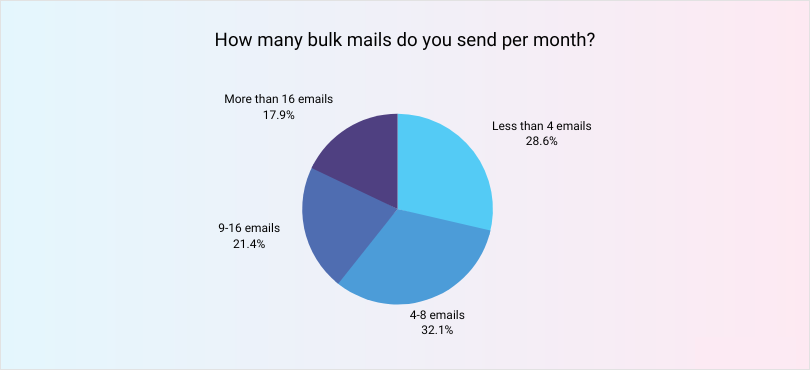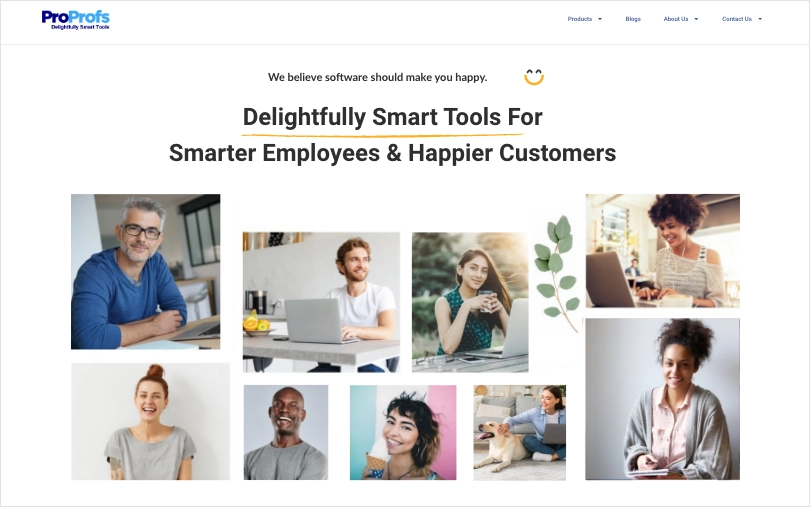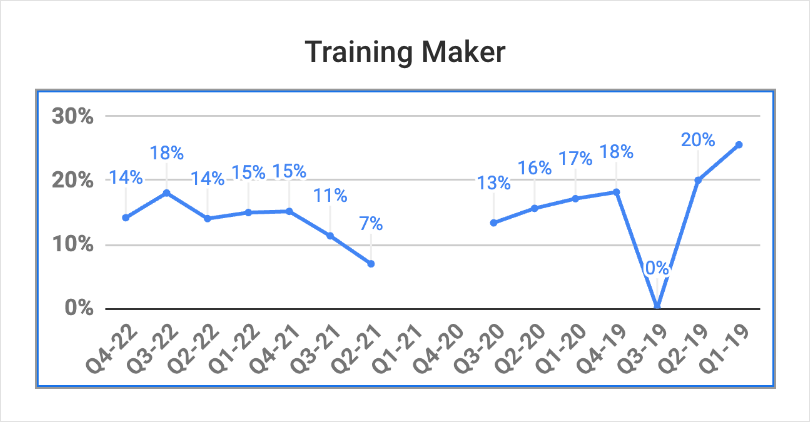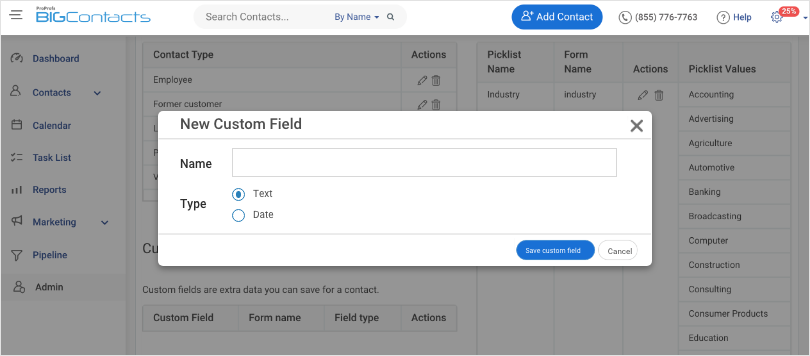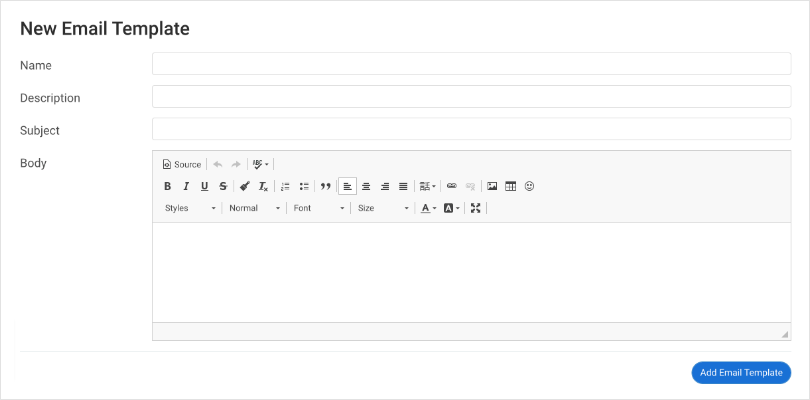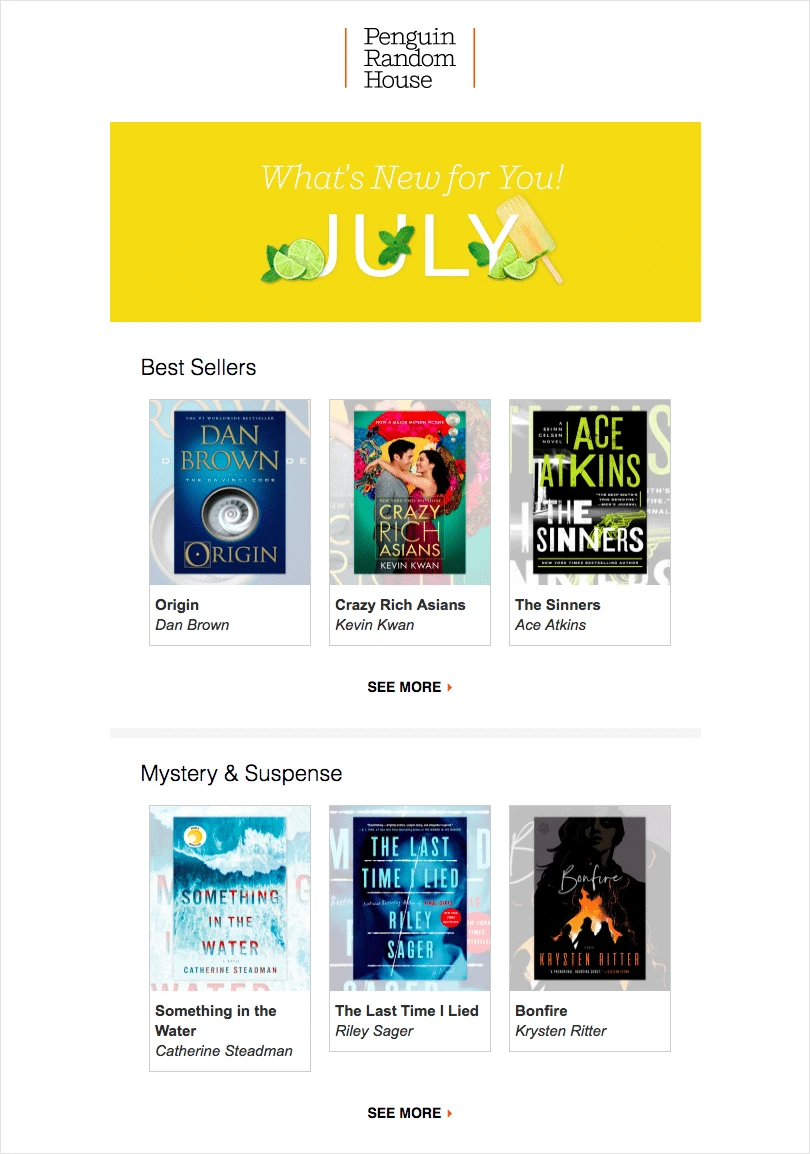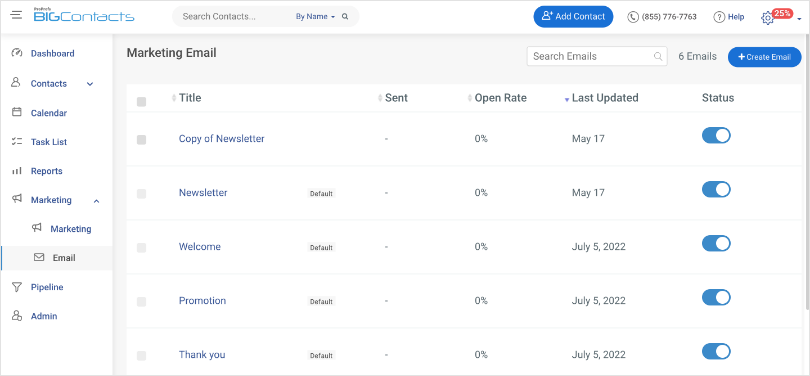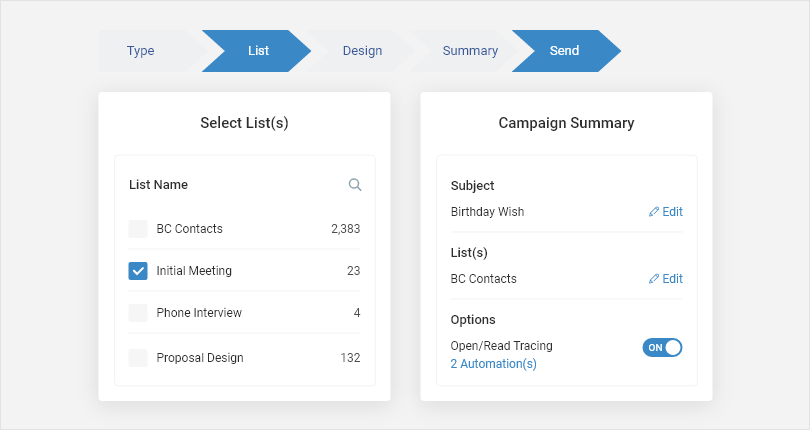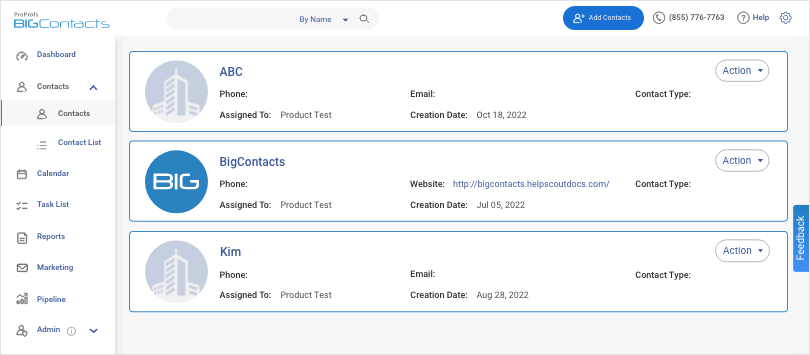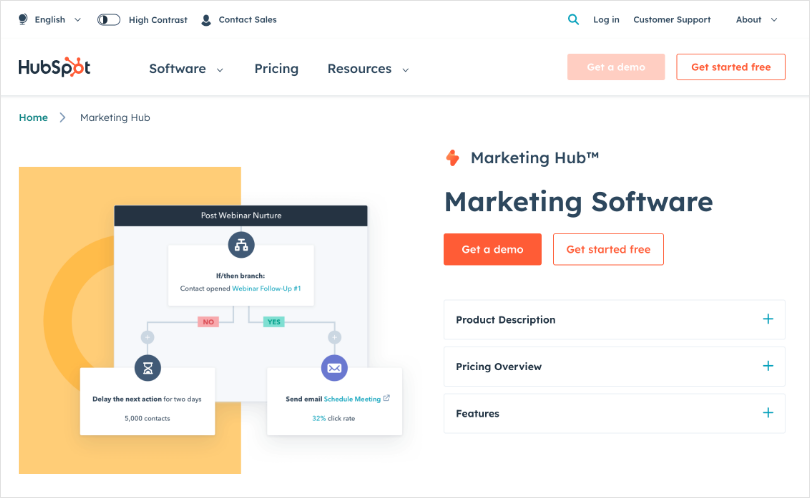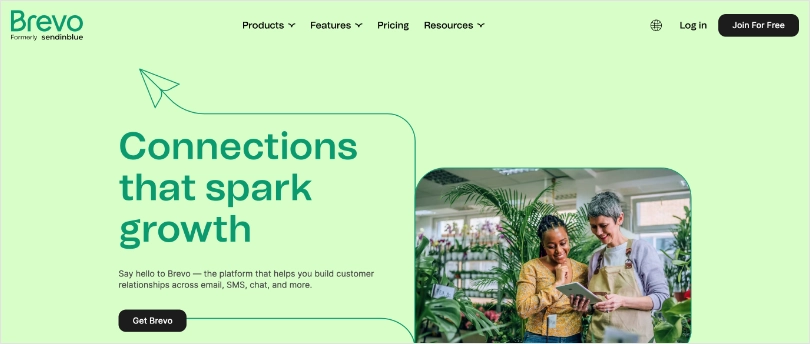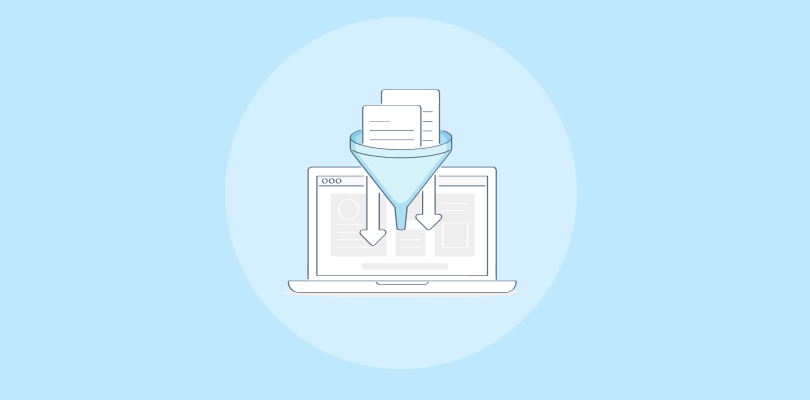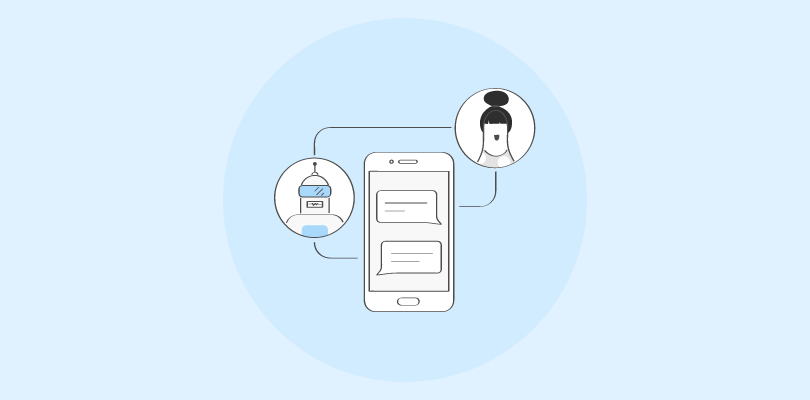Disorderly spreadsheets, manually managing contacts, and trying to personalize emails one by one can be a real headache. But all that changes with a powerful mass email CRM!
In today’s fast-paced digital landscape, reaching out to potential leads effectively (and at the right time) is crucial.
That’s where a powerful CRM tool swoops in to save the day. With its robust features and seamless automation, a mass email CRM can transform your email campaigns from lackluster to legendary.
No more struggling with outdated contact lists or scrambling to tailor messages for different segments. Say hello to streamlined processes, targeted communication, and sky-high engagement rates!
In this blog, we’ll dive into the challenges marketers face using traditional mass email campaigns and unveil how a mass email CRM can mitigate those obstacles. Get ready to revolutionize your email marketing game and witness unparalleled success!
In a Nutshell
- Mass email CRM software allows you to send the same message to multiple recipients. This is useful for bulk communication with your customers, leads, or contacts.
- You can use such a tool to schedule emails, monitor opens and clicks, and create mailing lists based on your business requirements.
- With an effective mass email CRM tool, you can save time, understand your prospects, and track results to improve future engagement.
- Discover the challenges of traditional mass email procedures and how a CRM tool can help you overcome them. Also, find various best practices that can help maximize the potential of your mass email CRM application.
What is Mass Email?
Mass email is the practice of sending a single message to many recipients in one go. It is typically used for communication or marketing purposes, making it possible to reach a wide audience efficiently.
Mass emails communicate important information, updates, promotions, or announcements to a large number of people at once. This saves time and resources compared to sending emails to recipients individually. Moreover, it can be an effective way to engage with a target audience, build relationships, and drive desired actions.
However, mass emails must not be confused with spamming.
Mass email is the legitimate practice of sending messages to people who have willingly opted in to receive them or have an existing relationship with the sender.
Spamming, on the other hand, refers to unsolicited emails sent to several recipients without their consent. These emails are often sent for malicious purposes, such as promoting scams, spreading malware, or collecting personal information.
Challenges With Mass Email
A study by Databox found that only 17.9% of businesses send more than 16 bulk emails per month.
But what prevents other businesses from making the most of this channel? This is a result of the wide range of challenges that can surface during mass email campaigns. Some of these are listed below.
Deliverability:
One major challenge is ensuring that emails reach the intended recipients’ inboxes. Filters and spam detectors can flag mass emails as spam, leading to lower deliverability rates and potential loss of communication.
Read More: How Your Emails Can End up in a Spam Folder
Open & Click-Through Rates:
Mass emails often suffer from low open and click-through rates. With recipients receiving numerous emails daily, grabbing their attention and compelling them to open and engage with the email content becomes a challenge.
Personalization:
Personalization is crucial for effective email marketing, but achieving it at scale can be a daunting task. Tailoring messages to individual recipients can be time-consuming, limiting the level of personalization achievable in traditional mass email campaigns.
Unsubscribes & Opt-Outs:
The risk of recipients unsubscribing or opting out of future emails is inherent in mass email campaigns. This can impact the reach and effectiveness of your campaigns.
Email Fatigue:
Over time, recipients may experience email fatigue due to the volume of mass emails they receive, resulting in reduced engagement and responsiveness.
To overcome these challenges, you must adopt a CRM with email marketing features like segmentation, targeted messaging, and automation to support your mass email efforts.
How Mass Email With CRM Makes a Difference
A mass email CRM not only simplifies the process of sending emails but also takes your marketing game to a whole new level.
Imagine personalizing your messages, targeting specific groups of customers, and tracking your email campaigns progress all in one place. It’s like having a superhero sidekick for your email marketing efforts!
Here are some key benefits of using a CRM for mass emailing –
Improved Efficiency:
A CRM automates the process of sending mass emails, allowing you to reach a large audience with minimal effort and time investment. It also brings all email communications to one place, enabling every team member to stay updated with recent changes.
Personalization at Scale:
A CRM empowers you to personalize your mass emails by dynamically inserting recipient-specific information into the email content. This level of personalization enhances engagement and helps build stronger connections with your audience.
Enhanced Deliverability:
CRM software often includes features that monitor and optimize email deliverability, helping you avoid spam filters and increase the likelihood of your emails reaching the intended recipients’ inboxes.
Detailed Analytics:
A CRM provides robust analytics and reporting tools, allowing you to track the performance of your mass email campaigns. This data helps you measure engagement, identify trends, and make data-driven decisions to refine your email marketing strategy.
Integration With Other Marketing Tools:
Many CRM platforms integrate seamlessly with other marketing tools and platforms, such as marketing automation software, customer databases, and social media platforms. This integration facilitates data synchronization and enhances the overall effectiveness of your marketing efforts.
Case Study: How ProProfs Uses Mass Email Campaigns to Win Customers
ProProfs harnesses the power of mass mail email campaigns through CRM to bring in new customers and leads. The team crafts monthly newsletters tailored to different products, strategically engaging the subscribers and guiding them through the sales funnel. The same goes for people who sign up for demos or submit their contact information through lead forms.
Let’s take a look at a snapshot of their email campaign report for ProProfs Training Maker.
In 2022, the company achieved a remarkable open rate of 15-18%. Since implementing Ideal Customer Profiles (ICPs) and customer segmentation to deliver hyper-personalized emails, the open rate has experienced a positive upward trend in 2023, reaching 22.73%.
This is the result of one such campaign. Extrapolating the numbers to multiple campaigns per year, targeting different objectives, the outcomes justify the efforts of investing in a mass mailing CRM system.
You, too, can replicate these outstanding results by leveraging a powerful CRM like BIGContacts. Here’s how you can maximize its potential:
- Define your Ideal Customer Profiles (ICPs) and create distinct customer segments based on purchase behavior and interaction history. Continuously refine these as you build your CRM capabilities and campaigns.
- Leverage email marketing tools to create groups for sending mass mailers, ensuring targeted messaging reaches the right audience.
- Develop a strategic roadmap for the year or at least two quarters, outlining your primary focus areas and objectives.
- Design personalized campaigns with dynamic content for different customer segments, enhancing engagement and response rates.
- Implement drip campaigns to nurture leads effectively, gradually building relationships and trust.
- Seamlessly transition leads to your sales team, enabling personalized interactions to move prospects further down the sales funnel.
With these steps, you can unlock the immense potential of a robust CRM system and witness remarkable success in your email campaigns, just like ProProfs.
How to Master Mass Email Marketing With CRM Software: 8 Best Practices
Running a successful mass email marketing campaign through CRM requires careful planning and execution. Here are some best practices for optimizing your mass email CRM campaigns.
Build a High-Quality Mailing List:
Ensure that your mailing list is composed of genuine and interested subscribers who have opted-in to receive your emails. This will help to avoid spam complaints and improve engagement rates. To aggregate this list of subscribers, you can:
- Create popups for your web pages that capture the attention of your visitors and invite them to join your email list.
- Create enticing content upgrades that provide additional information or resources related to your blog posts or web pages and require an email address to access them.
- Create fully or partially gated content that requires an email address to view some or all of the content, such as e-books, webinars, reports, or courses.
- Create loyalty and referral programs that reward existing subscribers for inviting their friends or colleagues to join your mailing list.
- Offer discounts and deals that entice visitors to sign up to receive exclusive offers or coupons.
Configure Your CRM Software:
Set up your mass email CRM software according to your specific needs. Choose a tool that is highly customizable and lets you modify aspects such as the following.
Customize Contact Fields:
Tailor the CRM software to your specific needs by creating custom fields that capture relevant information for your email campaigns.
For example, you can create custom fields like “Lead Source” or “Industry” to segment and target your contacts effectively.
Set up Templates:
Create and save email templates in your CRM software to streamline the process of creating and sending mass emails. Designing professional email templates with dynamic content will save time and ensure consistency in your business communication.
Schedule Emails:
Take advantage of the scheduling feature in your CRM software to send mass emails at the optimal time for maximum impact. This allows you to plan and automate the delivery of your emails, ensuring consistent and timely communication.
With scheduling, you can reach your audience when they are most likely to engage with your emails, increasing the chances of generating leads and conversions.
Optimize Subject Line, Body & CTA:
The subject is the first thing that subscribers see in their inboxes, so it needs to be compelling and attention-grabbing. Use clear language and avoid using spammy words or misleading information.
Ensure that your emails have high-quality content that is relevant, informative, and engaging. Include images, videos, infographics, etc., to make your emails more visually appealing.
Your emails should also include a clear and compelling call to action, encouraging subscribers to take the desired action. Make sure that your CTA is prominent and easy to find.
Add a Personal Touch:
According to Epsilon, customers are 80% more likely to make a purchase when a brand offers personalized experiences.
Use your subscribers’ information to personalize your emails. This can increase engagement rates and make your subscribers feel more valued.
Take Penguin Random House’s personalized newsletter, for example.
The newsletter consists of recommendations based on the reader’s previous purchases and preferences. It also lists some best-selling books that the buyer may be interested in.
An effective personalization approach is to segment your email list into groups based on demographics, interests, engagement levels, and purchase history. This will help you send more targeted and relevant messages to your subscribers, increasing the chances of engagement and conversions.
Read More: Customer Segmentation Analysis [The Only Guide You’ll Need in 2025]
A/B Test Your Emails:
A/B testing, or split testing, is a valuable best practice for mass email CRM campaigns.
It involves sending different versions of an email to different segments to determine which version performs better. This can help you understand what resonates with your audience and enables data-driven decision-making.
A/B testing lets you experiment with elements, such as subject lines, call-to-action buttons, content layout, or visuals, to identify the most effective combination.
Regularly Review Performance:
Generating reports to optimize performance is a crucial best practice for mass email CRM campaigns. It involves regularly analyzing and reviewing the data and metrics from your email campaigns to gain insights and make informed decisions.
Reports provide quantitative data on key performance indicators (KPIs) such as –
- Open rates
- Click-through rates
- Conversion rates
- Unsubscribe rates
These metrics help evaluate the overall effectiveness of your campaigns and identify areas for improvement.
Engage, Don’t Spam!:
Spamming your customers with mass emails can damage your reputation, lower your deliverability, and even get you into legal trouble.
To avoid spamming your customers, you should follow these tips –
- Use the double opt-in method to confirm that your recipients have permitted you to email them.
- Don’t assume your customers want to receive emails because they bought something or interacted with you. Give them the option to sign up for your email list and let them know what kind of emails they can expect.
- Build an organic list of subscribers genuinely interested in your products or services. Don’t buy or rent email lists from third parties, as they may contain invalid, outdated, or spam trap addresses.
- Set expectations for your email frequency, content, and value proposition. Tell your subscribers how often you will email them, what kind of emails they will receive, and how they will benefit from them.
- Don’t be a stranger to your subscribers. Send them relevant, engaging, and personalized emails matching their interests and needs. Avoid sending generic, irrelevant, or misleading emails that may annoy or confuse them.
- Use a reputable email marketing tool that can help you create and send bulk emails without spamming. Look for email templates, segmentation, personalization, scheduling, tracking, and analytics features.
By following these practices, you can create successful bulk email campaigns that engage your subscribers, drive conversions, and promote your brand.
6 Best Features to Look for in a CRM for Mass Emailing
By considering these top features, you can choose a mass email CRM software that aligns with your business needs and helps you execute successful email marketing campaigns.
1. Email Campaign Management:
Look for a tool offering robust features for creating, managing, and tracking email campaigns. This includes the ability to design visually appealing emails, schedule and automate campaigns, and track metrics such as open rates, click-through rates, and conversions.
2. Contact Management:
The CRM should have comprehensive contact management capabilities, allowing you to organize and segment your contact lists based on various criteria. Look for features such as contact import/export, list segmentation, tagging, and personalization options.
Read More: What Is Contact Management & How to Capitalize on It
3. Automation:
Automation features like autoresponders, drip campaigns, and personalized email content enable you to deliver targeted and relevant messages to your recipients based on their behavior or specific criteria.
Read More: Drip Email Campaigns: What They Are & How to Create Them
4. Deliverability & Spam Compliance:
The software should prioritize email deliverability and comply with anti-spam regulations. Look for features such as spam score checking, authentication protocols, and integration with email service providers to ensure high deliverability rates.
5. Analytics:
Effective CRM software should provide detailed reports on mass marketing email performance. Look for features that offer insights into open rates, click-through rates, conversion rates, subscriber engagement, and other metrics to track the success of your campaigns.
6. Integration & Compatibility:
Consider CRM software that integrates well with other tools and platforms you use, such as your website, marketing automation software, customer databases, and social media platforms. This ensures smooth data synchronization and enhances your overall marketing efforts.
Top 3 Mass Email CRM Software
In order to maximize the output of your mass email marketing campaigns, you need the right CRM system at your disposal. Here are three top CRM tools that you can use for your mass email campaigns.
1. BIGContacts
BIGContacts CRM is an exceptional bulk email software that can revolutionize your email marketing efforts. With its robust contact management capabilities, you can effortlessly send personalized emails to your contacts at scale.
The software enables you to create captivating email campaigns, track open and click rates, and automate follow-ups for maximum engagement. Its intuitive interface and customizable templates make designing eye-catching emails a breeze.
Key Features:
- Automate emails by setting up custom triggers and workflows.
- Generate in-depth reports on the performance of your mass email campaigns.
- Use detailed contact records to personalize your email outreach.
- Save time and maintain consistency using pre-built email templates.
What is Unique About It:
- Native integration with email marketing platforms, automatic email logging & tracking
What Needs to Improve:
- Deduplication, advanced search functionality
Pricing:
- Forever free plan for startups with all premium features. Paid starts at $5/user/month with a 15-day free trial.
G2 Rating:
- 4.5/5
2. HubSpot Marketing Hub
HubSpot offers a robust marketing platform that can help you send personalized emails to a large number of contacts in a single go. The intuitive interface allows for seamless template customization, A/B testing, and automated workflows.
Its robust analytics provide valuable insights into your email performance, enabling you to optimize your campaigns for maximum engagement.
Key Features:
- Log interactions against the respective contact record automatically.
- Personalize emails at scale to achieve better engagement outcomes.
- Measure the performance of email campaigns with detailed reports.
- Set up automated email campaigns to connect with your audience at the most appropriate time.
What is Unique About It:
- Lead scoring and nurturing, marketing analytics
What Needs to Improve:
- Customer service, customization options
Pricing:
- Starts from $30/month
G2 Rating:
- 4.4/5
3. Brevo
Brevo empowers you to take better control of your mass email campaigns by improving deliverability and engagement. The tool helps grow your mailing list by collecting leads from web forms and landing pages.
You can use the pre-built email templates to get started or create emails from scratch. Target your ideal customers using advanced segmentation options, ensuring your messages resonate with the right people at the right time.
Key Features:
- Customize email templates with a simple drag-and-drop editor.
- Access advanced performance statistics to optimize future performance.
- Use segmentation to target the right audience with your emails.
- Personalize emails based on customer behavior and preferences.
What is Unique About It:
- A/B testing, automated sequences
What Needs to Improve:
- Limited templates, CSS customization
Pricing:
- Free plan available with limited daily emails
- Paid plans start from $25/month
G2 Rating:
- 4.5/5
To find the most appropriate solution, consider your unique needs, challenges, budget, etc. Also, pay attention to the type of customization options and the quality of customer support offered by the vendor.
Read More: 15 Best Bulk Email Senders in 2025
Skyrocket Your Growth With Mass Email CRM
Mass email CRM can boost your sales, loyalty, and efficiency by helping you reach out to prospects and customers in a personalized way.
But how do you pick the best software for your business?
There are many factors to take into account, such as the features, ease of use, and affordability of the software.
You also want a solution that integrates well with your existing tools and processes. And most importantly, you want a solution that delivers results and helps your business grow.
That’s why we recommend BIGContacts. It’s a simple and powerful CRM and email marketing platform that lets you manage your contacts, tasks, calendars, and sales pipeline from a single place. Use it to create highly personalized and automated campaigns that keep prospects and customers engaged at all times.
Don’t just take our word for it. Try BIGContacts for yourself and see how it can transform your business. Sign up for a free trial today and get access to all the premium features and benefits. You’ll be amazed by how much faster you can grow your business with mass email CRM!
Frequently Asked Question
How can I use a mass email CRM to generate leads?
To use a mass email CRM like BIGContacts for generating leads, follow these steps:
- Organize and segment contacts based on demographics, interests, or interactions.
- Craft personalized campaigns that resonate with your audience. Highlight the value and include a strong call-to-action for lead generation.
- Schedule and send mass emails promptly, ensuring consistent communication with leads.
- Measure metrics like open rates, click-through rates, and conversions to optimize future lead-generation efforts.
How can I integrate my mass email CRM with other lead-generation tools for better results?
- Explore lead generation tools that complement your mass email CRM, such as landing page builders, customer survey platforms, or social media lead capture tools.
- Set up seamless data synchronization between your mass email CRM and other tools. This ensures the automatic flow of lead data into a centralized and up-to-date database.
- Assign lead scores and segment leads based on criteria using your CRM and lead generation tools. This enables targeted and personalized communication.
- Integrate workflows between your CRM and lead generation tools to automate tasks and streamline processes, such as adding new leads from web forms to specific email campaigns.
- Consolidate data from your mass email CRM and other lead generation tools to gain comprehensive insights. Analyze the performance of different channels, campaigns, and lead sources to refine your strategies.
FREE. All Features. FOREVER!
Try our Forever FREE account with all premium features!

